THIS is the time of year we need to be planning for students who may not meet graduation requirements.
 Talisa Harris of Sulphur Springs High School is here to talk through the best way to support these learners. You can listen to the show in SoundCloud, ITunes or right here.
Talisa Harris of Sulphur Springs High School is here to talk through the best way to support these learners. You can listen to the show in SoundCloud, ITunes or right here.
This week is Part III in a series about what we do when our English Learners don’t pass their assessments or graduation requirements. How do we support them to the finish line?
 In Part 1 and Part 2 of this series I promised to list some of the actual things we are doing to make a difference for students who may not be successful in their tests or classes.
In Part 1 and Part 2 of this series I promised to list some of the actual things we are doing to make a difference for students who may not be successful in their tests or classes. 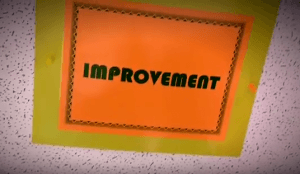
Top Five Practices
- Schedule your newcomers students in a way that mimics a newcomer center. Offer innovative courses that can support language and offer credits for graduation. (We mention Marie Heath from Plano ISD who is a leader with the Social Intelligence course.) Stack those courses with any sheltered classes so that their schedule is supportive but also allows them to have exposure to mainstream classes and native speaking peers. Offer classes that use growth mindset themes, honor culture and funds of knowledge.
- Make sure the student and their families know “the plan”. (BTW: The fact that they know there IS a plan is as important, maybe more important, than the details of the plan. The plan is of no use if students feel there is no plan and just drop out before they fully understand how to eventually be successful.
- Use a systemic approach to sheltered instruction. I recommend all teachers in the building be trained on Seidlitz 7 Steps to a Language Rich Interactive Classroom (which includes #QSSSA) because these seven practices boost engagement for all learners and support language acquisition and content learning. Students of any language proficiency can participate with confidence in any class when teachers use these techniques.
- CLUBS! Your new English learners or long-term English learners may need additional support beyond tutoring. If they are involved in clubs, they can draw on that sense of belonging so that we can keep them engaged and supported through set backs. Our One World Club pairs ELs with native peers who want to support them throughout the school year.
- Be sure your students understand what is available to them for free to gain literacy, math skills, science, social studies, etc. Someone needs to council your newcomers and their families on how a person improves their literacy. Our English learners can take ownership of their own learning when they are empowered with this knowledge. Free websites such as Khan Academy and NewsInLevels can make a huge difference to a student who would like to accelerate their acquisition of language and content learning.
Special Guest Talisa Harris
I also want to let you hear from Talisa Harris who is a high school ESL teacher in Sulphur Springs ISD. You can follow her at @THarrisESL Talisa reached out to let me know that she was concerned about her immigrant students and how to support them when they are not successful with requirements needed for graduation. I was amazed when Talisa shared everything they are doing to support their language learners.
Talisa’s concerns for her students
- Some students aren’t able to pass EOC’s in the amount of time that they have, specifically those who come as 9th or 10th graders, and those who come in at the ages of 17 or 18 or older.
- Students have limited amount of time to learn English, take classes, pass EOC’s due to age.
- Students have to work and take care of younger siblings outside of school.
- Many Hispanic students at school, so, Spanish speakers aren’t always “forced” to learn or speak Spanish to survive.
- While education is important to their families, for many, survival, i.e. work, is more important ultimately, so if a choice needs to be made, either during school, or after leaving high school, work is often chosen.
- Some students lack the motivation to really work hard at learning English…they begin that way, but then, when the “new” wears off, they are distracted by other needs, less motivated students, etc.
- New immigrants are dealing with trauma, culture shock, separation from family…learning to “deal” with those things many days takes precedence over academic requirements.
What are Some Things Being Done for Students at Talisa’s School
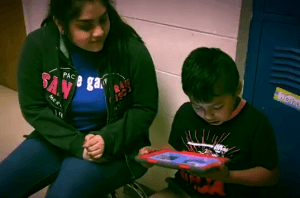 Talisa let me know that these are the things they are doing at their school. We talked about each of these in the show. I am most excited about the first three which are things that support academics but are not taking place in an academic class.
Talisa let me know that these are the things they are doing at their school. We talked about each of these in the show. I am most excited about the first three which are things that support academics but are not taking place in an academic class.
- Tutoring/mentoring sessions each week with bilingual students from Texas A & M Commerce.
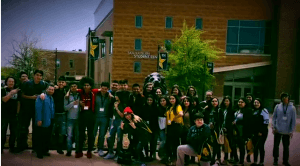
- Newcomers reading with bilingual first and second graders.
- Planning to use some of the curriculum of the Social Intelligence courses used in other districts next year to address both English and lowering the affective filter/helping students adjust and learn to understand their new home/school .
- Language support classes to intervene as necessary in content areas, as well as to teach English.
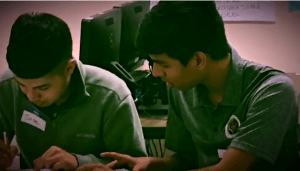
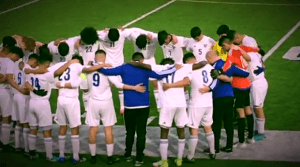
- In some cases, some students have been able to change schedules close to the test dates in order to review material.
- Constant “cheerleading”, emotional support…encouragement to come to school, stay in school, become involved, remember why you’re here,etc.
- Offer courses using Odysseyware to help some students take courses online.
Here is a video of the Talisa’s students in Sulphur Springs. You can see that they had a great school year and I know that you will agree that these kiddos are set up for success with a teacher like Ms. Harris:
I shared that my school does not have a newcomer center or program. We have a Newcomer English Language Development class which is basically an ESL class that earns them an elective credit. Our “plan” for our ELs is not different than the plan we have for every child. If they are unsuccessful in classes they need for graduation, they have an opportunity to take the class again.  This is where the clubs, friends, parents and teachers come in. The reality is that our students may not pass their classes. So we need them to SEE students who have been in their situation… not passed an assessment… and eventually found success in these areas. Talisa and I talk about how we need to be intentional about showing our ELs other ELs who have passed the requirements the first time around and those that have not.
This is where the clubs, friends, parents and teachers come in. The reality is that our students may not pass their classes. So we need them to SEE students who have been in their situation… not passed an assessment… and eventually found success in these areas. Talisa and I talk about how we need to be intentional about showing our ELs other ELs who have passed the requirements the first time around and those that have not.
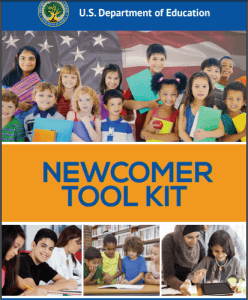 The US Dept of Education’s Newcomer Tool Kit is a great resource to review different types of program and support.
The US Dept of Education’s Newcomer Tool Kit is a great resource to review different types of program and support.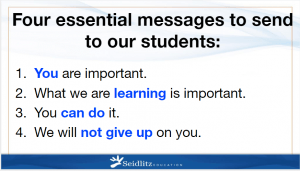
I want to thank Talisa Harris again for her passion and her willingness to share all the great things she is doing for her language learners. If you listen to the show, she shares some incredible wins she recently experienced with her ELs.
Please remember that we are growing people. Their dreams and goals can absolutely come true with our support. We can all take a page from Talisa:
Build relationships with students.
Help them build relationships with each other and students in their new community.
Keep learning on behalf of your students and above all else… KEEP MOVING FORWARD!
Stay awesome, Eduheroes!
Carol
PS: Do your teachers have practical ways to deliver sheltered instruction in all content classes? Please reach out if you’d like support. I’m excited to be offering Seidlitz Education training and consulting full time now. You can reach me at carolsalva1@gmail.com.
